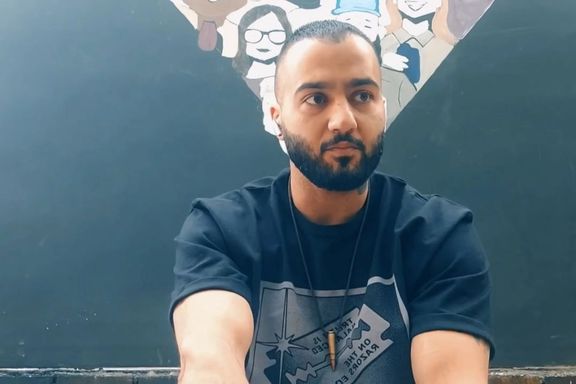Iran 'Feigning Leniency' Toward Dissident, Says US Envoy

The US says the Iranian Judiciary's recent decision to overturn the death sentence of dissident rapper Toomaj Salehi was an attempt to "mislead the world by feigning leniency."

The US says the Iranian Judiciary's recent decision to overturn the death sentence of dissident rapper Toomaj Salehi was an attempt to "mislead the world by feigning leniency."
The Biden administration's acting special envoy for Iran, Abram Paley, said the cases against Toomaj Salehi and Nobel Peace Prize laureate Narges Mohammadi "are perfect examples" of how the Islamic Republic "wields its judicial system to silence dissent."
"Their purported crime? Speaking out against the regime's abuses. And now in the case of Toomaj, the regime misleads the world by feigning leniency," he said of the pair who have become faces of the uprising.
The US envoy called on the Islamic Republic to "release Toomaj, Narges, and every political prisoner now."
Thousands of Iranians have been rounded up since the 2022 Woman, Life, Freedom uprising began in the wake of the murder of Mahsa Amini in morality police custody.
Over 550 protesters were killed in the uprising which has posed the greatest challenge to the regime since the founding of the Islamic Republic.
Dissident rapper Salehi was sentenced to death by a revolutionary court in Esfahan in April this year on charges of "spreading corruption on Earth."
However, his lawyer announced on Saturday the overturning of Toomaj's death sentence, saying “the Supreme Court avoided an irreparable judicial error".
Initially sentenced to six years and three months in July 2023, Salehi was granted bail on November 18, 2023. However, less than two weeks later, the 32-year-old dissident rapper was re-arrested on new charges of "publishing falsehoods" after releasing a video detailing his torture experiences in custody, as reported by Raisian.
He is among dozens of celebrities and public personalities to have been targeted by the regime, with punishments including travel bans, bank account freezes, work bans and imprisonment.
Iran is amid a record wave of executions in a bid to quash dissent, last year alone executing 853 according to Amnesty International, numbers supported by the United Nations.
Overturning Salehi's death sentence also coincided with the snap presidential elections in Iran that will take place on Friday as at least two thirds of Iranians will boycott the upcoming polls.